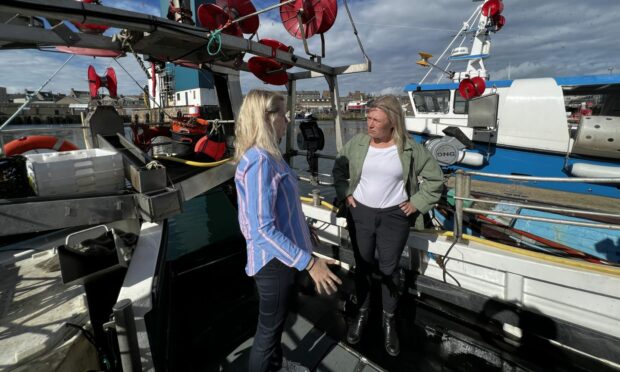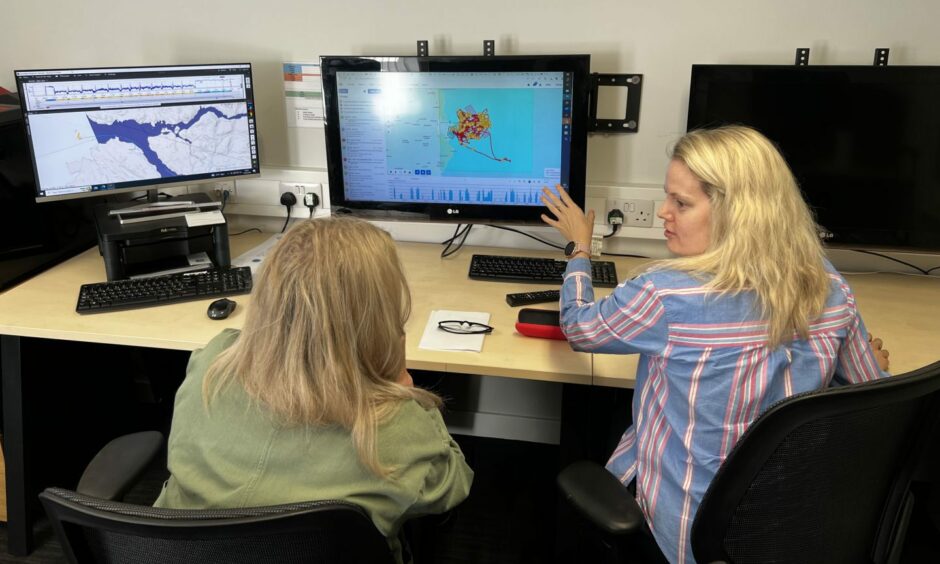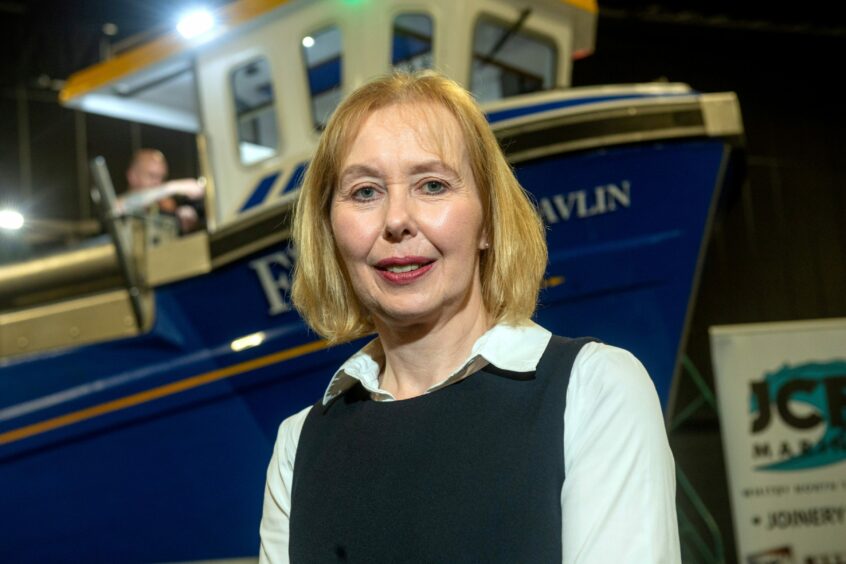Scottish fishing chiefs are “studying the detail” of new proposals that would require the industry’s smallest vessels to carry electronic tracking and monitoring technology.
Larger boats already have to have the equipment on board.
Launching a consultation today, the government said rolling out the requirement to inshore boats under 39ft would help with fisheries management, marine planning and environmental protection.
REM to become mandatory on some vessels
It also announced the more sophisticated remote electric monitoring (REM) systems are to become mandatory on large pelagic (species such as mackerel and herring) vessels and all scallop dredge vessels in Scottish waters.
Further rollout of REM will be considering alongside future catching policy development.
Most smaller boats are not currently required to carry on-board tracking devices or REM systems.
Improving the monitoring of inshore fishing vessels is an important component in assuring compliance with regulations.”
Scottish Government
The new consultation paper says: “Our understanding of the activities of these vessels operating in Scottish waters – or Scottish vessels operating outwith Scottish waters – is limited. Some information can be derived about location of catch through statutory (document) returns… but this is gathered retrospectively, and there is no means of verifying its accuracy.
“Improving the monitoring of inshore fishing vessels is an important component in assuring compliance with regulations.”
Fishers to get some funding towards putting the new technology on board
The government wants to see a range of technologies used to make sure the requirement is “proportionate to each vessel’s fishing activity, while balancing costs”.
Holyrood plans to “contribute” to the cost of a vessel’s first tracking device or REM system “subject to budgetary constraints”. There is no plan to hep boat owners with additional expenses, including monthly running costs.
Environment Minister and Aberdeenshire East MSP Gillian Martin, visiting Peterhead today, said: “These proposals will support the sustainable management and development of our marine environment.
“I encourage the inshore sector and others with an interest to continue to engage with us, and to take part in the consultation on vessel monitoring. Government, industry and communities all have a shared interest and commitment to a healthy marine environment. Co-operation and co-management will ensure that both Scotland’s fishing industry and our marine environment can thrive sustainably.”
In Peterhead @GillianMSP met with marine Scientists, fishing industry members & went aboard an inshore vessel which is trialling tracking technology. Proposals for electronic tracking & monitoring technology for small fishing vessels are open for views: https://t.co/iL6yJf1gFo pic.twitter.com/Y7kxHckaCl
— Scot Gov Marine (@ScotGovMarine) August 14, 2023
Scottish Fishermen’s Federation chief executive Elspeth Macdonald said: “The Scottish fishing industry is fully committed to sustainability, and recognises how important it is for consumer confidence in our fabulous seafood produce. The industry, for many years, has led and been involved in a number of initiatives and projects that embed sustainability into what we do.
“We will be studying the detail of these proposals and responding in due course to the consultation, while being mindful of the multitude of existing pressures on the small boat sector around our shorelines.”
The inshore vessel tracking and monitoring consultation is open until November 7.
Submissions can be made online at consult.gov.scot
The government’s last fishing industry consultation caused a furore over proposals for Highly Protected Marine Areas. These would have made 10% of Scottish waters virtually off-limts to fishers. They were ditched after an outcry on their likely impact on the catch sector.



Conversation